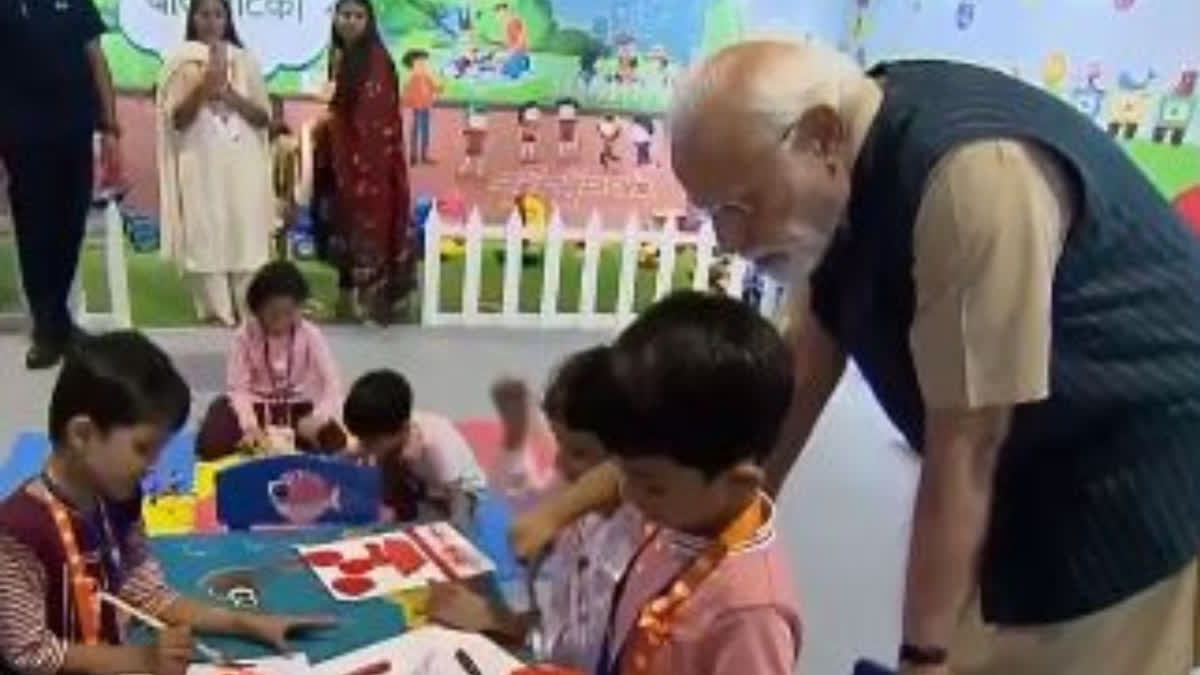New Delhi: Prime Minister Narendra Modi heaped praise on the New Education Policy -2020, saying that all languages in the country would get benefitted because of it. From social studies to science and technology, every subject would be available in native Indian languages, the Prime Minster said, addressing after inaugurating the All India Education Convention at Bharat Mandapam, Pragati Maidan, on the occasion of the completion of three years of National Education Policy (NEP-2020).
PM Modi said that the inherent strength of All India Education Conference was that it remained a confluence of antiquity and modernity, combining the best of both. Education in mother tongue would bring out the real strength of a student and it would do natural justice to today's youth, he said. Indians were excelling in space science, software technology and other sectors, the PM noted. The Prime Minister was accompanied by Union Education Minister Dharmendra Pradhan.
The Convention provides a platform for experts of schools, higher educational institutions, and skilling institutions to discuss, deliberate and share insights, strategies, success stories and best practices in implementing the NEP 2020, an official release said.
Taking into consideration the fact that India aims to become a 5 trillion economy in the period of Amrit Kaal, all sectors of the economy have to be bolstered and strengthened by supply of knowledge-oriented leadership and skilled workforce. NEP 2020 paves the way for developing and grooming our youth for such a responsibility, preparing them for emerging job roles of the future.
The policy emphasizes developing the foundational and higher cognitive capacities of each individual such as critical thinking and problem solving. Therefore, there is a need for the leadership of academia, policy experts, and industry experts to come together for brainstorming and devising implementation strategy.
Accordingly, the event will include sixteen sessions spread over 2 days from 29th to 30th July, discussions will be held on Access to Quality Education and Governance, Equitable and Inclusive Education, Issues of Socio-Economically Disadvantaged Group (SEDG), National Institute Ranking Framework (NIRF), Indian knowledge System, Creating Synergy between education and Skilling Future of Work, Internationalisation of Education, among others.



